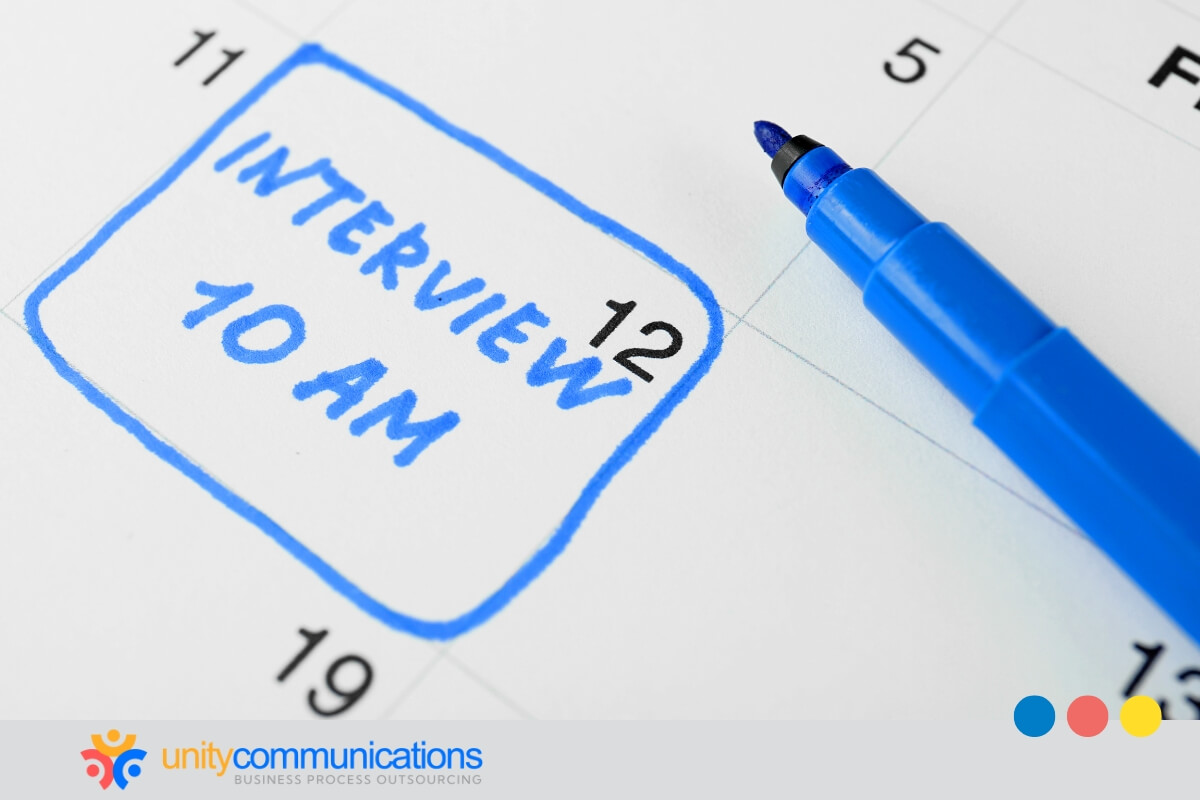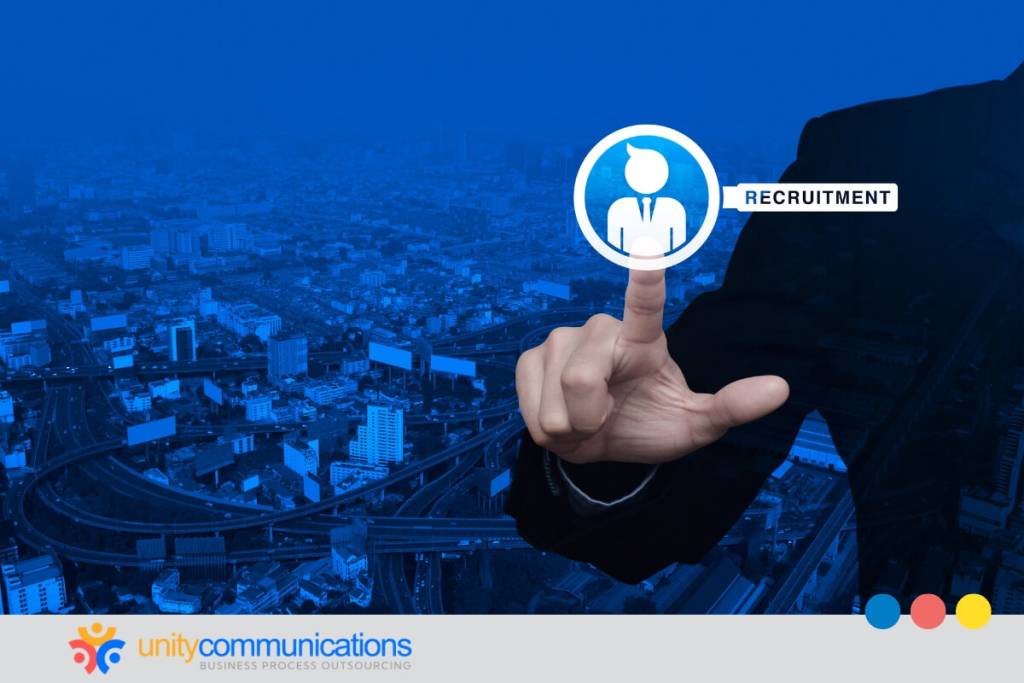Table of Contents
Securing the right talent is a fundamental challenge for any organization. To manage it more efficiently, many turn to recruitment process outsourcing (RPO), which focuses specifically on finding and hiring employees.
However, as recruitment needs grow more complex and competitive, RPO providers leverage artificial intelligence (AI) to enhance every process.
If you want to learn how AI supports RPO operations, this article is for you. It explores how this revolutionary technology is changing this business process outsourcing model to attract the right candidates quickly and streamline workflows.
Read below to learn more!
Understanding the role and nature of RPO

To understand RPO, it is essential to define BPO. Short for business process outsourcing, it is a strategic practice of contracting a specific business task to a third-party team. This approach lets you leverage external expertise, reduce operational costs, and improve efficiency.
These benefits make BPO a growing business strategy. According to Statista, the global BPO market could reach $415.73 billion in 2025 and grow to $491.15 billion by 2030.
With RPO, you can transfer all or part of your permanent recruitment activities to an external team. These include the following:
- Sourcing candidates through various channels
- Screening applications and qualifications
- Interviewing potential hires
- Onboarding new employees for a smooth transition
- Talent pipelining for future needs
- Enhancing employer branding to attract top talent
- Performing background and reference checks
- Managing applicant tracking systems (ATS)
- Complying with recruitment regulations
The primary goal of RPO services is to help you:
- Enhance recruitment efficiency through specialized expertise and streamlined processes.
- Control costs by converting fixed recruitment expenses into variable ones.
- Improve the quality of hires by accessing a wider talent pool and utilizing advanced assessment methods.
- Free up internal resources to concentrate on strategic business objectives.
- Scale recruitment efforts quickly based on business demands.
- Gain access to specialized recruitment technology and analytics.
- Reduce time-to-hire for critical roles.
- Improve candidate experience.
With these advantages, many businesses prefer to outsource talent acquisition.
How does AI support RPO operations?
The use of AI in the BPO industry is nothing new. For BPO providers, it isn’t about replacing human recruiters but empowering them with data-driven decisions, real-time insights, and intelligent automation.
AI-powered outsourcing is rapidly emerging as a new talent model. About 83% of executives already adopting it and many building strategies to manage digital workers. This paves the way for future productivity and efficiency gains once governance and contracting mature.
In recruitment, the technology redefines what is possible in high-volume hiring and complex talent acquisition strategies. Here’s how AI tools support RPO teams and their operations:
1. Smarter sourcing: AI-powered talent discovery
Talent sourcing is the critical first touchpoint in recruitment. While traditional methods such as manual keyword searches and static job boards have their limitations, AI-driven sourcing tools are changing the game.
These tools employ machine learning (ML) algorithms to analyze candidate profiles across diverse platforms, from LinkedIn to niche online forums. This allows RPO teams to precisely match candidates to job descriptions, drastically improving the breadth and quality of their candidate pool.
The prominent benefits of leveraging AI for talent acquisition include, but are not limited to, the following:
- Broader reach. AI recruitment systems scan millions of online profiles to identify passive candidates.
- Precision targeting. Natural language processing (NLP) interprets nuances in applications and job descriptions for better matches.
- Reduced sourcing time. Automated tools can shortlist candidates in minutes, cutting hours of manual effort.
Platforms such as hireEZ, SeekOut, and Arya are prime examples of how AI tools reshape and support RPO operations.
2. Candidate screening: Efficiency meets accuracy
Manually screening a large volume of candidates is time-consuming. AI transforms RPO teams’ capabilities by automating this initial, critical phase.
These intelligent tools rapidly analyze résumés, evaluate work history, and even assess soft skills from social profiles or pre-assessment tests. This automation speeds up the selection process and boosts accuracy.
Some AI tools and techniques include the following:
- Résumé parsing and ranking. AI models prioritize candidates based on job fit and historical hiring success.
- Chatbots. Tools such as Mya and Olivia engage with candidates, answer frequently asked questions (FAQs), and collect screening information 24/7.
- Video interview analysis. Platforms such as HireVue use AI to assess tone, speech patterns, and facial expressions.
This automation streamlines hiring processes and guarantees consistent, unbiased evaluations, boosting fairness and diversity.
3. Candidate engagement: Personalization at scale
Maintaining strong candidate engagement is crucial, especially in today’s competitive landscape. AI elevates RPO capabilities by helping personalize communication and scaling the partnership, boosting conversion rates and satisfaction.
Here’s how AI supports RPO teams in improving their operations for candidate engagement:
- Intelligent email campaigns. Tools such as Beamery customize messaging based on candidate behavior and interests.
- Conversational AI. Virtual assistants offer real-time responses to questions, reducing candidate drop-offs.
- Predictive engagement scoring. AI identifies when candidates are most likely to respond or disengage.
These capabilities help RPO providers nurture long-term candidate relationships, enhance brand loyalty, and create a more positive candidate experience.
4. Interview scheduling: Seamless coordination
The administrative burden of interview scheduling can significantly slow down hiring. AI-powered schedulers streamline this process, eliminating endless email exchanges and manual coordination. This automation ensures a smoother, faster experience for everyone involved.
Some key advantages of leveraging AI for recruitment scheduling include:
- Calendar integration syncs with recruiter and hiring manager availability.
- Time zone detection is ideal for global talent acquisition strategies.
- Instant rescheduling reduces delays caused by conflicts or changes.
Solutions such as Clara facilitate faster, frictionless interviews, improving candidate experience and accelerating time-to-hire.
5. Predictive analytics: Forecasting success
Perhaps the most transformative capability AI brings to RPO is its predictive power. AI can accurately forecast hiring outcomes by meticulously analyzing historical hiring data, current workforce trends, and intricate candidate behaviors. This foresight moves RPO from reactive to proactive, offering a significant strategic advantage.
Here’s how predictive AI supports RPO teams in their operations:
- Quality-of-hire predictions. AI evaluates which candidates are likely to perform well and stay long-term.
- Attrition risk analysis. The technology helps RPO teams anticipate early turnover and plan retention strategies.
- Hiring funnel optimization. Predictive analytics identifies bottlenecks and suggests workflow improvements.
This level of intelligence enables RPO providers to make proactive, data-driven decisions that lead to better business outcomes.
6. Onboarding optimization: Smoother transitions
AI’s role in the recruitment journey doesn’t end with the hiring decision. It extends seamlessly into onboarding. This continued support helps cement a positive first impression and accelerates productivity.
Some AI tools RPO teams can use for onboarding include, but are not limited to, the following:
- Task automation. AI platforms manage document submissions, benefits enrollment, and training schedules.
- Personalized onboarding journeys. AI tailors content and milestones for individual roles.
- Sentiment analysis. Tools monitor feedback and engagement levels to improve onboarding.
Streamlined onboarding leads to higher early engagement and productivity, reducing early attrition.
How to get AI-integrated support through RPO operations

Integrating AI in RPO operations is a transformative shift that profoundly benefits organizations. This tool empowers teams to optimize every stage of the talent acquisition lifecycle, offering strategic advantages that improve efficiency and effectiveness.
Here are the key benefits of partnering with an RPO provider that leverages the latest AI recruitment tools:
Reduced operating costs and boosted scalability
RPO teams are under constant pressure to deliver results while managing costs. AI recruitment tools help reduce operational expenses by:
- Automating repetitive tasks
- Decreasing reliance on manual labor
- Improving resource allocation based on predictive analytics
Moreover, AI supports scalability in ways traditional systems cannot. Whether you’re handling a sudden surge in high-volume hiring or expanding into new markets, AI systems adapt quickly and cost-effectively.
Enhanced candidate experience and employer image
A seamless, responsive, and personalized candidate experience can define hiring success. So how does AI support RPO operations in this aspect? Its ability to cover routine-based tasks can help ensure candidates feel valued and informed throughout the hiring journey, benefiting candidates through:
- Faster response times
- Transparent communication
- Tailored recommendations
This can boost acceptance rates and strengthen the employer brand—a key differentiator in the war for talent.
Improved quality of hire and retention
Beyond efficiency and cost savings, a primary goal of RPO is to secure high-quality talent that stays with the organization long-term. AI significantly contributes to this by:
- Identifying best-fit candidates. AI’s ability to analyze vast datasets and identify complex patterns ensures a more accurate match between candidate profiles and job requirements, including predicting cultural fit.
- Reducing bias. By relying on data-driven insights rather than unconscious human biases, AI can help create a more diverse and inclusive talent pipeline, leading to fairer hiring decisions.
- Predicting success and retention. AI’s predictive analytics can forecast a candidate’s likelihood of success in a role and their potential for long-term retention. This reduces turnover costs and increases workforce stability.
By leveraging AI, RPO solutions go beyond simply filling roles. They strategically enhance workforce quality and stability.
The bottom line

Incorporating advanced AI is not just about adopting tools. It’s about transforming recruitment into a data-driven, scalable, and candidate-centric operation.
From sourcing to onboarding, AI supports RPO operations by enhancing every stage of the hiring lifecycle. It empowers RPO teams to work smarter, not harder, by reducing time-to-hire, increasing candidate engagement, and making better hiring decisions.
If you want to learn how you can benefit from AI-powered support and RPO operations, let’s connect!




